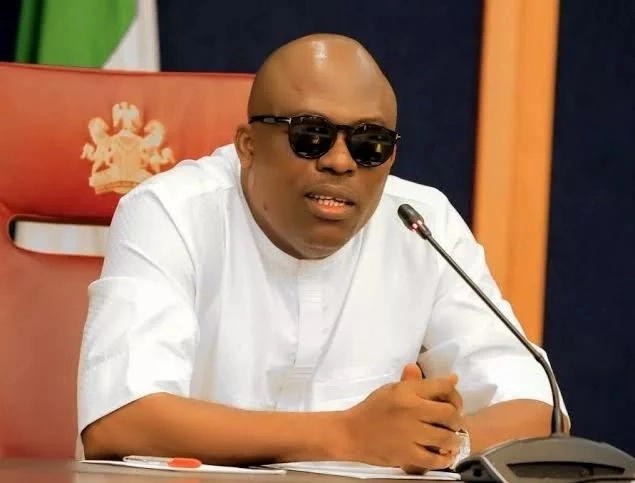CurrentReport Blog In a recent turn of events, Governor Sim Fubara of Rivers State has sparked controversy by questioning the existence of members of the Rivers State House of Assembly.
Governor Fubara, speaking during a meeting with political and traditional leaders from Bayelsa State, emphasized that the lawmakers’ legitimacy is contingent upon his recognition, which he claims is rooted in a political agreement, rather than constitutional mandate.
The governor reiterated his stance, stating, “Those group of men who claim that are Assembly members are not Assembly members, they are not existing.” He emphasized that his acceptance of the Peace Accord, brokered by political heavyweight Tinubu, was a political compromise aimed at fostering stability within the state.
Fubara’s remarks shed light on the ongoing rift between him and his predecessor, Minister of the Federal Capital Territory, Nyesom Wike. This discord has prompted defections from the Peoples Democratic Party (PDP) to the All Progressives Congress (APC) and has raised concerns about the stability of governance in the state.
The intervention of Tinubu, who facilitated the peace deal, underscores the broader implications of political dynamics within the region. By endorsing the agreement, which includes recognizing lawmakers aligned with Wike, Tinubu seeks to mitigate tensions and restore equilibrium within the political landscape.
However, Fubara’s bold assertion regarding the legitimacy of the House of Assembly members has reignited debates about the role of political agreements in shaping governance structures. While the Peace Accord may have provided a temporary reprieve, it also underscores the delicate balance between political expediency and constitutional authority.












